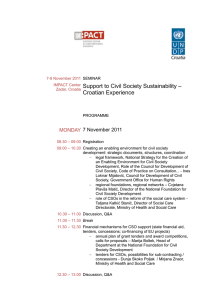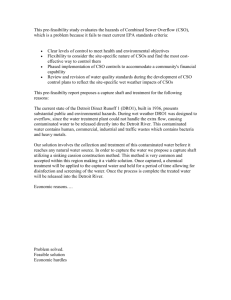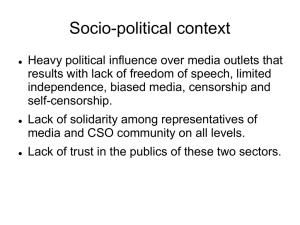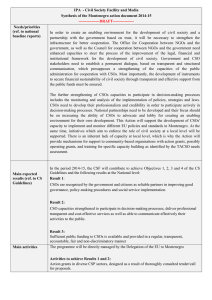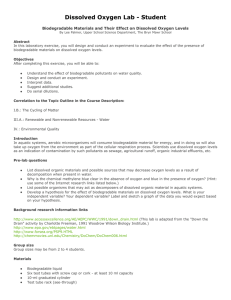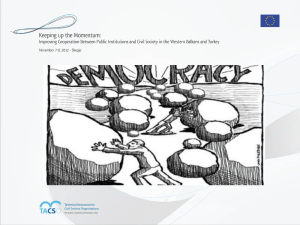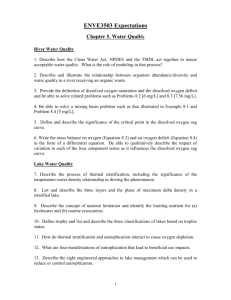CSO Impacts
advertisement
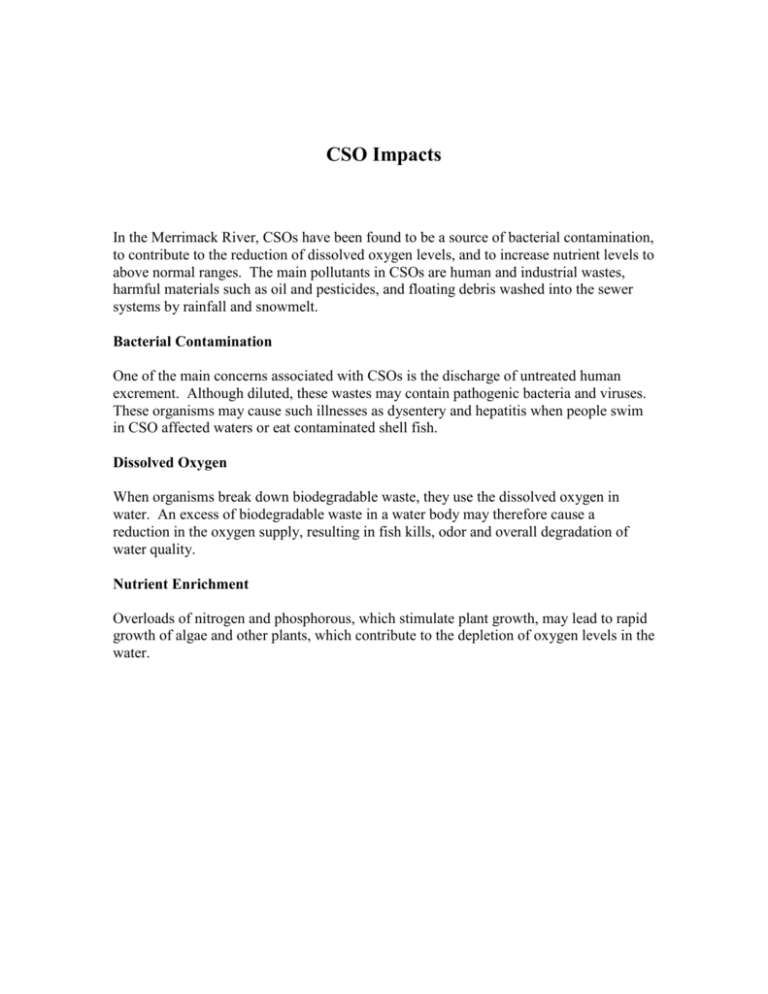
CSO Impacts In the Merrimack River, CSOs have been found to be a source of bacterial contamination, to contribute to the reduction of dissolved oxygen levels, and to increase nutrient levels to above normal ranges. The main pollutants in CSOs are human and industrial wastes, harmful materials such as oil and pesticides, and floating debris washed into the sewer systems by rainfall and snowmelt. Bacterial Contamination One of the main concerns associated with CSOs is the discharge of untreated human excrement. Although diluted, these wastes may contain pathogenic bacteria and viruses. These organisms may cause such illnesses as dysentery and hepatitis when people swim in CSO affected waters or eat contaminated shell fish. Dissolved Oxygen When organisms break down biodegradable waste, they use the dissolved oxygen in water. An excess of biodegradable waste in a water body may therefore cause a reduction in the oxygen supply, resulting in fish kills, odor and overall degradation of water quality. Nutrient Enrichment Overloads of nitrogen and phosphorous, which stimulate plant growth, may lead to rapid growth of algae and other plants, which contribute to the depletion of oxygen levels in the water.

